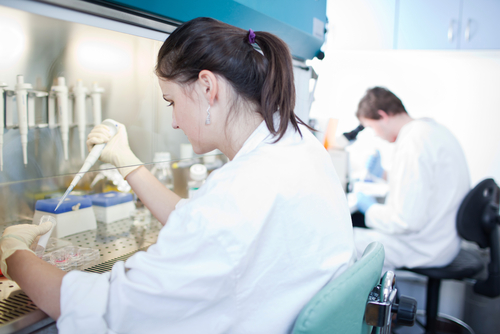Rebamipide May Ease Dryness in Sjögren’s Patients via Immune Cell Regulation, Animal Study Suggests

Oral rebamipide, a gastroprotective medication approved in some countries, may slow the progression of Sjögren’s syndrome by increasing the number of regulatory B- and T-cells and reducing the production of inflammatory molecules in the salivary glands and spleen, according to research in a mouse model of the disease.
The study, “Immune modulation by rebamipide in a mouse model of Sjogren’s syndrome via T and B cell regulation,” appeared in the journal Immunology Letters.
In salivary and lacrimal glands of people with Sjögren’s syndrome, immune T-cells damage tissue and contribute to the activation of B-cells, which produce autoantibodies.
Rebamipide, used across Asia to treat gastritis and gastric ulcers but not an approved treatment in the U.S., has shown an ability to lessen the severity of rheumatoid arthritis and spondyloarthritis by modulating T- and B-cells.
Rebamipide has also been associated with easing dry eye and dry mouth, the major symptoms of Sjögren’s syndrome, but little is known about its effects on T-and B-cell regulation in this disease.
A team with the The Catholic University of Korea addressed this gap in a mouse model of Sjögren’s syndrome, given either oral rebamipide or a sham treatment (control group) daily for six weeks.
Results showed that rebamipide use suppressed disease progression compared to untreated animals with Sjögren’s syndrome, as reflected in a higher secretion of saliva and reduced infiltration of inflammatory cells into the salivary glands.
Levels of three inflammatory molecules — interleukin (IL)-6, TNF-alpha, and IL-17 — in the salivary glands and spleen were lower in mice given rebamipide than in controls.
Subsequent experiments then found that, in isolated spleen cells, the number of both regulatory B-cells and B-cells producing the anti-inflammatory molecule IL-10 increased with rebamipide use, indicating reduced B-cell hyperactivation.
In lab-cultured cells, rebamipide lowered the number of T-helper (Th) 1 and Th17 cells, both involved in B-cell maturation and, in the case of Th17 cells, associated with the autoimmune diseases. The production of IL-6, IL-17, and the inflammatory activator IFN-gamma was also lower.
The number of spleen-derived regulatory T-cells (Tregs) was also seen to be higher. Of note, Tregs dampen excessive immune responses linked with autoimmune diseases.
“Thus, rebamipide may be effective in controlling the immune imbalance between pathogenic immune cells and regulatory cells, resulting in fundamental improvement in patients with [Sjögren’s syndrome],” the scientists wrote.
In addition to Japan, South Korea, China and India (brand names Mucosta and Rebagen), rebamipide is approved in Russia under the brand name Rebagit. It is marketed by Otsuka Pharmaceutical, based in Japan.






